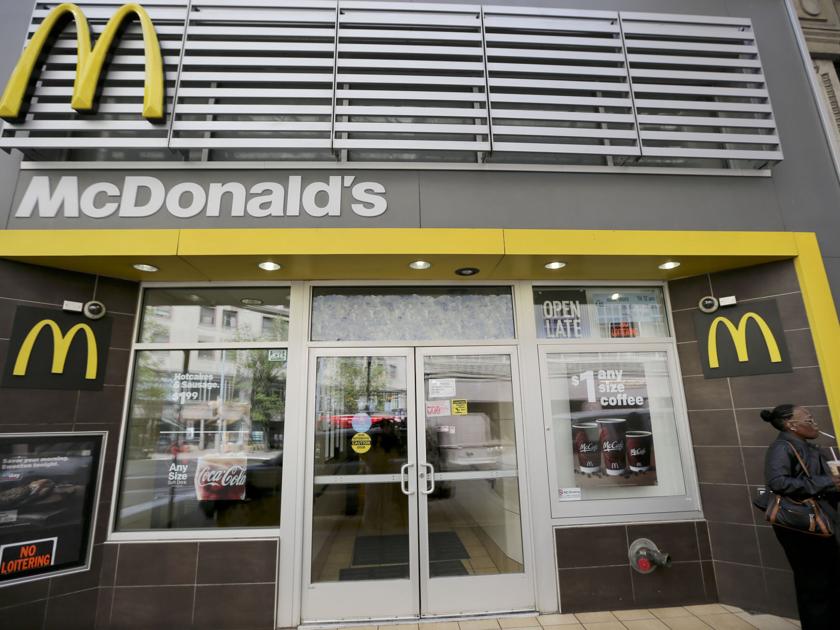
Turns out the fast-food wars are still all about burgers.
Forget, for the moment, kale and quinoa, those trendy pretty boys of American cuisine. The leafy vegetable and the ancient grain have for years fed the prevailing food narrative, that more Americans are trying to clean up their diets, or at least are saying they are, and begging off burgers as part of the effort.
Try telling that to McDonald's and Burger King.
McDonald's has posted positive U.S. same-store sales for eight of the past nine quarters. Shares of Burger King's parent company are trading near an all-time high.
It's not kale salads and quinoa bowls driving the phenomenon. It's the humble hamburger, the cheap soda and the perennially popular chicken nugget.
As recently as two years ago, McDonald's was mired in its worst slump in more than a decade. Chief Executive Officer Steve Easterbrook, charged with mounting a comeback when he took over in March 2015, talked of transforming the world's largest restaurant chain into a "modern, progressive burger company." To many observers, that meant healthier fare at the empire built on a positive response to "Would you like fries with that?"
There was one problem.
"A lot of people associate healthy food with things that don't taste very good," said Michael Halen, a Bloomberg Intelligence analyst.
McDonald's has shifted focus to its value menu and core food items, and that means Big Macs and Chicken McNuggets. Burger King has homed in on burgers and chicken, too. The No. 2 U.S. fast-food chain, under the management of the private equity firm 3G Capital, has focused relentlessly on what politicians would call its base — "young, hungry males." This is a tried-and-true strategy, even if it's lost in the overwhelming chatter about clean and organic ingredients.
McDonald's posted positive U.S. same-store sales of 4.1 percent in the third quarter, its best performance in almost two years. Burger King saw strong results, too, with the key metric gaining 4 percent. Wendy's, the third-biggest U.S. burger chain, reports third-quarter financial results next week. Same-store sales have climbed each of the past five years.
That comes as growth in the industry is relatively flat, meaning the two burger giants are gaining what's known in the industry as "stomach share." The NPD Group estimates that visits to fast-food restaurants will finish 2017 little changed from last year, with a similar result expected in 2018. The only growth is coming from higher menu prices, according to the research firm.
It's true that healthier food is being eaten. Panera Bread, a leading U.S. healthy-food chain, is doing well. And McDonald's, during its recent rally, has been improving its kitchen equipment. The chain is experimenting with fresh beef, has pulled artificial ingredients from Chicken McNuggets and, in the U.S., stopped serving chicken raised with antibiotics.
Still, Easterbook no longer uses his "modern, progressive" catchphrase. These days, he touts McDonald's core principle: cheap food served fast. A national deal offering drinks of any size for $1 has driven sales and customer traffic in recent months, and the "McPick 2 for $5" features nuggets and — guess what — Quarter Pounders.
McDonald's fell into its slump partly because it pulled its dollar menu, which was popular with customers but less so with restaurant operators, who expected a wider profit margin. McDonald's is preparing to roll out out its successor, which will offer items for $1, $2 and $3.
"We know that customers motivated primarily by value and deals come more often and spend more," Easterbrook said on the company's Oct. 24 earnings call.
McDonald's and Burger King have both been standouts in the stock market this year. Burger King's parent, Restaurant Brands International Inc., and McDonald's have both surged more than 35 percent, each touching an all-time high.
The key for both companies is good promotions that drive traffic, and a menu that pushes some of those diners to grab more expensive items once they come through the doors, said Dennis Lombardi, who runs Insight Dynamics, a restaurant consulting firm.
It also helps that, despite the buzz around healthy eating, Americans still enjoy a juicy burger.
"The large masses aren't quickly changing their dining habits to eat healthy exclusively," Lombardi said. "If I'm laying concrete, I'm not worried about a couple hundred extra calories."
http://www.omaha.com/livewellnebraska/health/in-age-of-kale-and-quinoa-fast-food-success-depends/article_3869dd50-bb63-11e7-8fd7-5f569baf1a2e.htmlBagikan Berita Ini














0 Response to "In age of kale and quinoa, fast-food success depends on burgers and nuggets"
Post a Comment